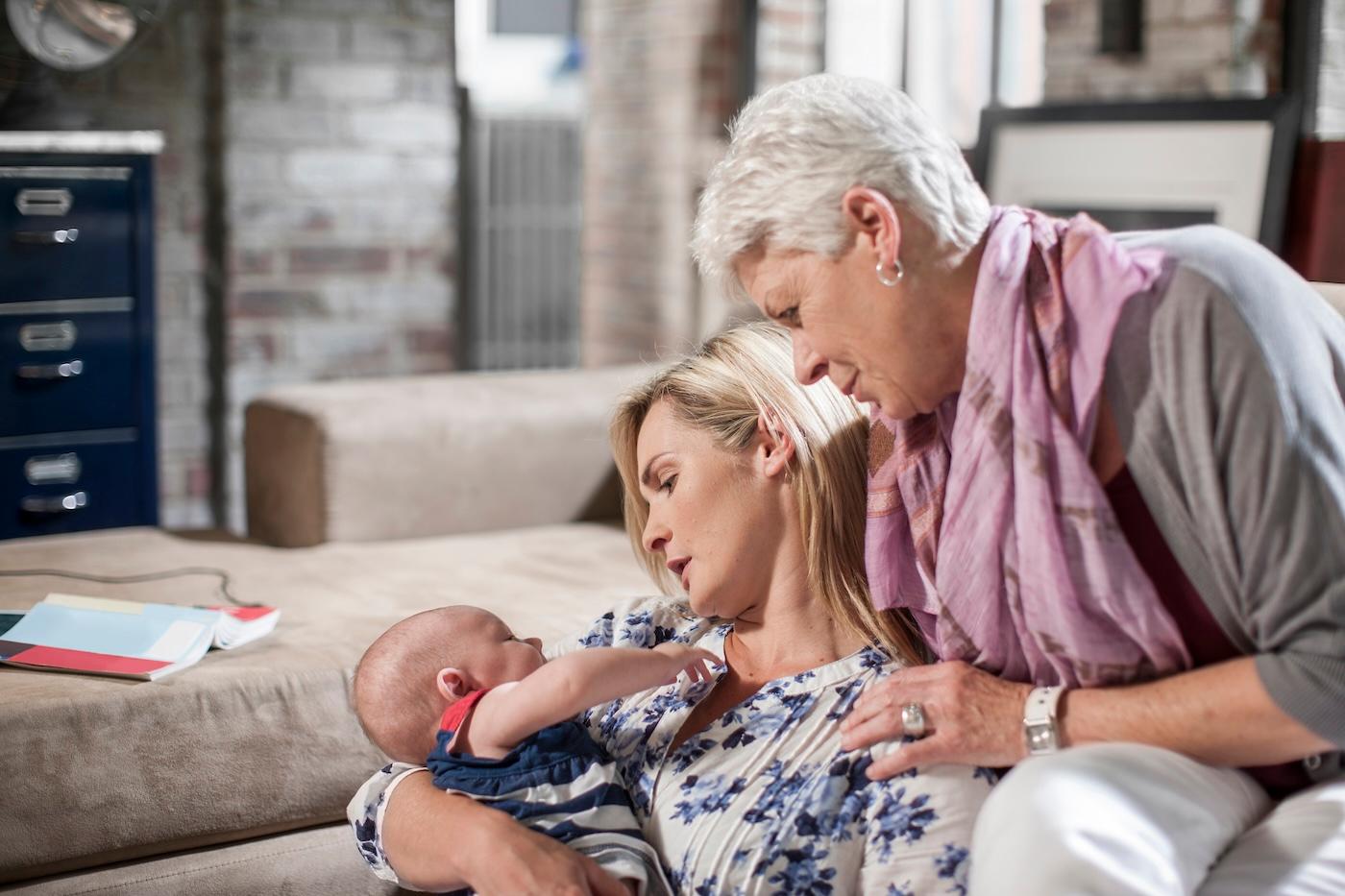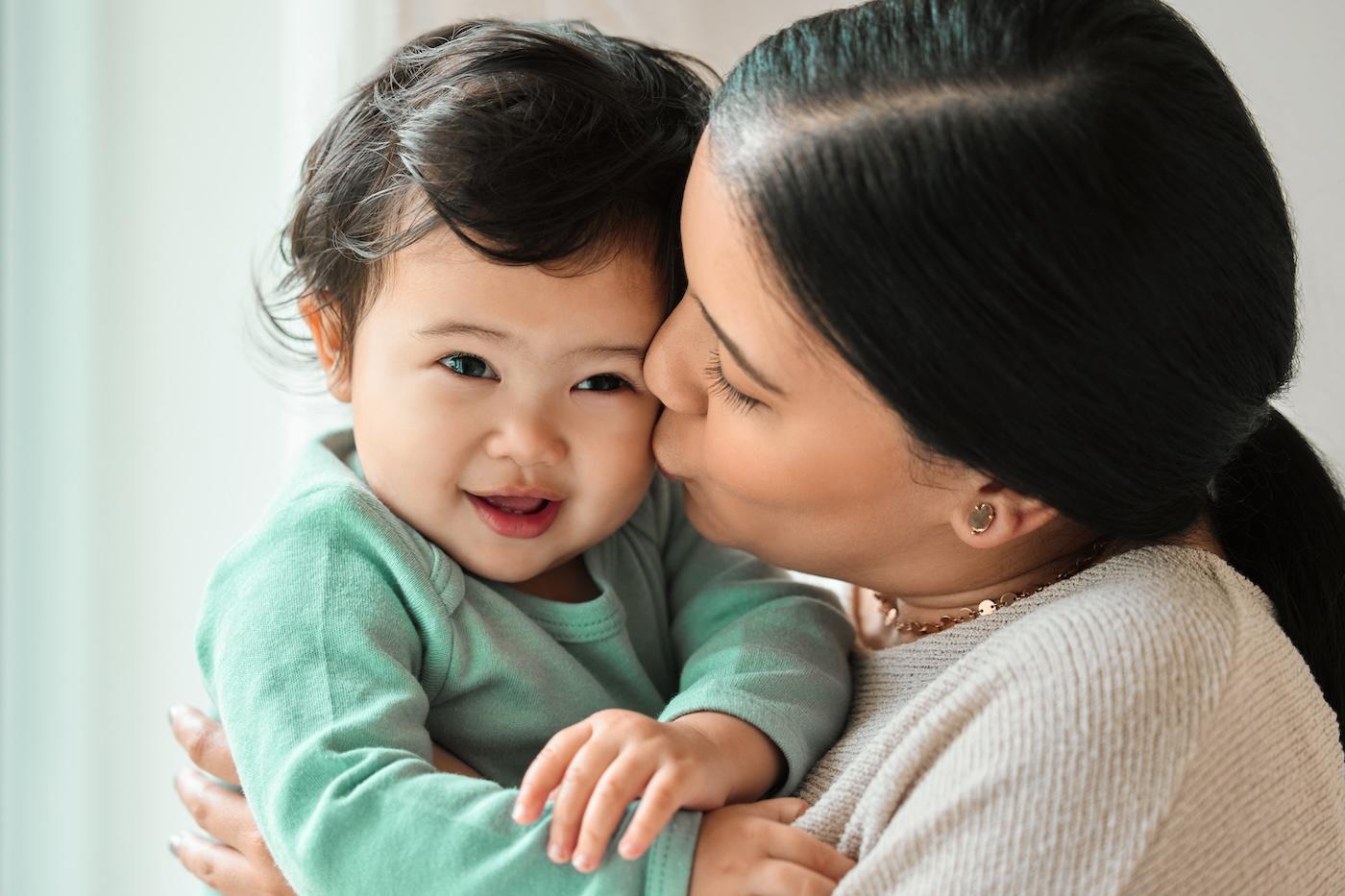PARENTS
A Zero-Tears Guide to Your First Trip Away From Baby
Being prepared will help you—and your little one—flourish while you’re away.

Written by
Happiest Baby Staff

If you are a new parent—or a seasoned parent with a new arrival in your family—leaving your child with a caregiver while you go on a trip can feel scary…even if you know your child will be in good hands. But with a little bit of planning and prep work, you can take the anxiety of traveling out of the equation, so you are able to truly enjoy your trip. Here are a few tips for how to prepare yourself, your baby, and your caregiver for your first time away.
How to prepare yourself for your first trip away:
No matter how long your trip will be, you will want to prepare as much as possible to help make everything go smoothly. Here are a few things to consider:
- Breastfeeding. If you are breastfeeding your baby, then pack a portable pump. Even if you are gone too long to collect and save the milk, pumping will still help keep your production up while you are gone. You can pump extra milk to store in the freezer before your trip so that your baby will be well fed in your absence. If your baby has trouble using a bottle, give them lots of practice before you go.
- Print your itinerary as well as your contact information. Print and make several copies of your itinerary as well as travel and contact information. Keep one copy for yourself and give the rest to your child's caregivers.
- Take deep breaths. Every parent gets the jitters before they leave their baby for the first time. That is absolutely to be expected. But do not worry—with a little planning, you and your little one will be fine!
- Create a special comfort item for your child. Try wearing a sweater or soft wrap for a few days that can pick up your scent. When you leave, give this to your caregiver to help soothe your baby when they get upset. Your scent will help your baby feel safe and secure.
How to prepare your child for your first trip away:
If you and your baby have not ever spent time apart, then a trip might spark some stress. To help keep things as calm as possible, try helping your baby prepare for your departure:
- Give your baby opportunities to get used to being with other people. Ask friends and family to spend time alone with your baby while you are there. You could briefly disappear to laundry or run a quick errand while Grandma watches your child, for example.
- Practice saying goodbye. Saying goodbye and telling your child that you will be back can be scary if they do not know what to expect. If your baby is an infant, this likely will not be an issue. But if your baby is closer to toddler-age, then saying goodbye might bring on the waterworks. You can make short trips to the store or even just walk outside and come back in. Get your child used to say goodbye while feeling safe; knowing that you will be back will help them transition when it comes time for you to leave on your trip.
- Stock up on your child's favourite things. To ease the blow of your absence, be sure to stock up on your child’s favourite snacks, foods, activities, and other things. Set out their favourite clothes, loveys, and blankets.
- Tell your child they can talk to you. Even while you are away, you can still talk on the phone or do video calls so they can see your face. Having access to you can mean the world, especially if your child is old enough to understand that you are not at home.
How to prepare your caregiver for your first trip away:
If you can, choose a caregiver who is already familiar to your child. To help make the experience go smoothly...
- Do a practice run. If your baby has not spent much time with other people yet, then try having your caregiver pop over for a few visits to interact with your baby while you are there. This practice can help your child to feel safe with this new person.
- Leave lots of instructions. Give your caregiver a list of foods, clothes, and activities that you know your baby loves (along with any 'don'ts'). Routines help babies feel confident and secure, so be sure your caregiver knows all of your little rituals. For example, If there is a particular lullaby you sing before, write out the lyrics. You want your baby’s day-to-day to be as seamless as possible while you are gone.
- Share emergency contacts and instructions. Provide your caregiver with all of the information they will need in the event of an emergency, such as a list of health issues, medications, and allergies. Give your caregiver a list of emergency phone numbers, including your doctor’s phone number and address, as well as your itinerary and how to reach you, so they know where you will be and when. If you will be blocking out time when you cannot be reached (for a spa appointment or a big conference panel, for example), have a backup contact your caregiver can reach.
- Preplan visits and activities. If you will be gone for a few days, consider offering to set up playdates or activities in advance so that they have ways to break up their time while also giving your child options for fun things to do.
- Leave your caregiver a gift. Even if you pay your caregiver, a kind and lovely gesture is to leave them a gift, especially one they can use. You could arrange for a favourite local eatery to deliver dinner one night. Or leave tickets to the movies or theatre or some other event that they can use when your trip is over. Making an effort to make your caregiver feel appreciated is a wonderful way to leave everyone feeling good.
Disclaimer: The information on our site is NOT medical advice for any specific person or condition. It is only meant as general information. If you have any medical questions and concerns about your child or yourself, please contact your health provider. Breastmilk is the best source of nutrition for babies. It is important that, in preparation for and during breastfeeding, mothers eat a healthy, balanced diet. Combined breast- and bottle-feeding in the first weeks of life may reduce the supply of a mother's breastmilk and reversing the decision not to breastfeed is difficult. If you do decide to use infant formula, you should follow instructions carefully.
SHARE THIS ARTICLE
PARENT PICKS
Bestsellers



















